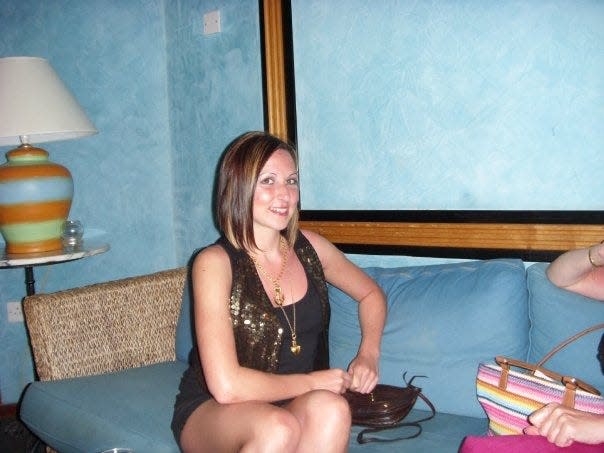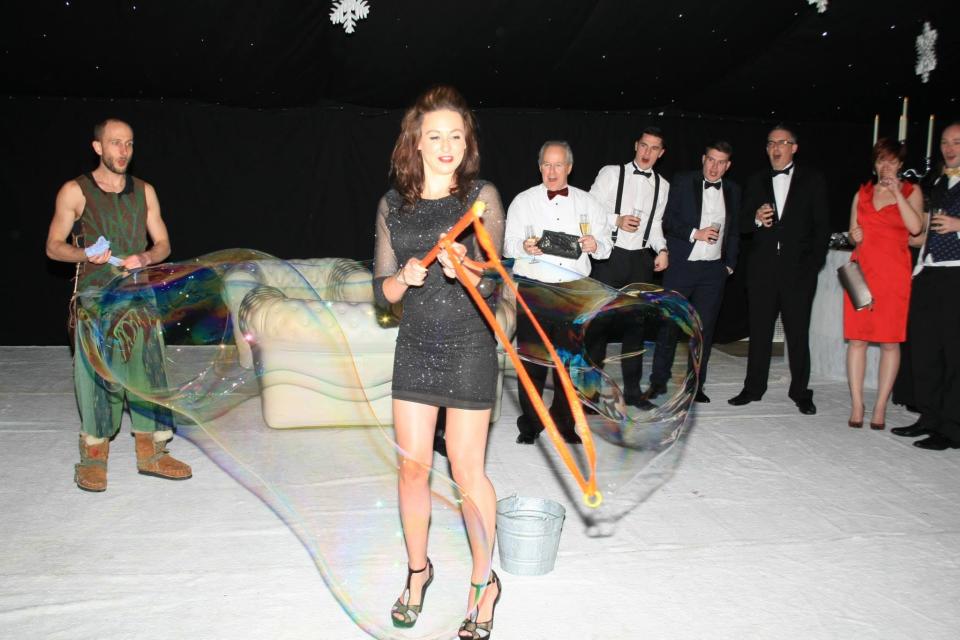I was trapped in a cycle of losing and gaining weight, despite training to be a nutritionist. Here's how I broke free from diet culture.

Angela Clucas is a registered nutritionist who has struggled with yo-yo dieting.
Even with a nutrition degree, she couldn't shake the desire to be smaller.
Working on her mindset and focusing on strength helped her finally change her outlook.
This as-told-to essay is based on a conversation with Angela Clucas, a registered nutritionist from The Isle of Man, UK. It's been edited for length and clarity.
It all started when I was 16 or 17. Y2K diet culture was everywhere. When I look back on some of that stuff now, it's so crazy. You see the "plus-size" women on "America's Next Top Model," and they're literally a US size 6.
I wasn't very confident, and I think I started to see those messages and think, if I change my body, if I lose weight, if I can be like that, then I will just be accepted better.
So I set about trying to diet and I suppose it was a bit of a control thing. I did the Cabbage Soup Diet, the British Heart Foundation Diet, which is not from the British Heart Foundation charity: you basically live on next to nothing, and then one day you get bananas and milk. It's really crazy.
I just did diet after diet and the mad thing is that I never really had weight to lose in the first place. Every time I did one of these diets, I would lose some weight and then gain back more. I just got really stuck and entrenched in that cycle and it always made me think: I can't do it. I can't diet hard enough. Why am I a failure?
And that coupled with the low confidence I had in the beginning… It went on and on for years.

But now, I realize I never had any weight to lose. Since changing my mindset, I feel a lot more confident in myself. I know that focusing on strength, health, and happiness is a much better use of my mental energy than continually trying to punish and shrink my body.
Fad diets aren't sustainable and healthy weight loss doesn't involve over-restriction or cutting out food groups. It just took me a long time to understand that.
A nutrition degree didn't stop me from doing fad diets
When I was 22, I was so obsessed with nutrition that I decided to go and do a degree in it. But I couldn't get a nutritionist job afterwards, and I kept doing even more, worse diets like Whole 30 and Insanity, which was a 90-day workout plan that's meant to be the ultimate shred, just making you push harder, harder, harder.
The degree had a lot of scientific information about what protein, carbs, and fats are, but it never went into psychology. I could write a meal plan for someone to lose weight, but I now know it's never about being told. We all know that we should eat more vegetables, but we don't do it.

I was still working in an office and trying all these things and I still knew I really wanted more than anything to be working as a nutritionist. So I went back to college when I was 34 and did a master's degree in sports nutrition, which I loved. It went deep into understanding the metabolism, but it still didn't ever give me the answers as to why I couldn't diet hard enough.
The irony is that by most measurements, such as the BMI, I was never overweight. I just always felt like I needed to be smaller. Then again, I don't know any woman that doesn't say they want to lose seven pounds.
Ditching diet culture by changing my mindset
I reached a turning point when I read a book called "The Chimp Paradox," which is all about understanding the voice in our heads.
I was like, hang on, this stuff is way bigger than just trying to get smaller. And then from there it just spiraled, in a good way.
I read a lot more about how to change the way you think, for example I loved Brene Brown's work. It really got me into thinking there's got to be a better way to either sustainably lose weight and keep it off or get out of that mindset that you even need to lose weight in the first place.
A big part of my breakthrough came through working with a brilliant personal trainer. We bounced ideas about body image around all the time, and it gradually sunk in for me that I didn't need to slash my calories or feel bad for eating a donut. That continual message combined with focusing on getting stronger was a game changer for me.
And now I am a full-time nutritionist, helping others reach their goals.
Through my journey, I learned how important it is to work on your mindset. My teaching now is based on more than just, say, telling someone to eat more protein. It's about how to think about goals and habits and set yourself up to succeed.
Read the original article on Business Insider


